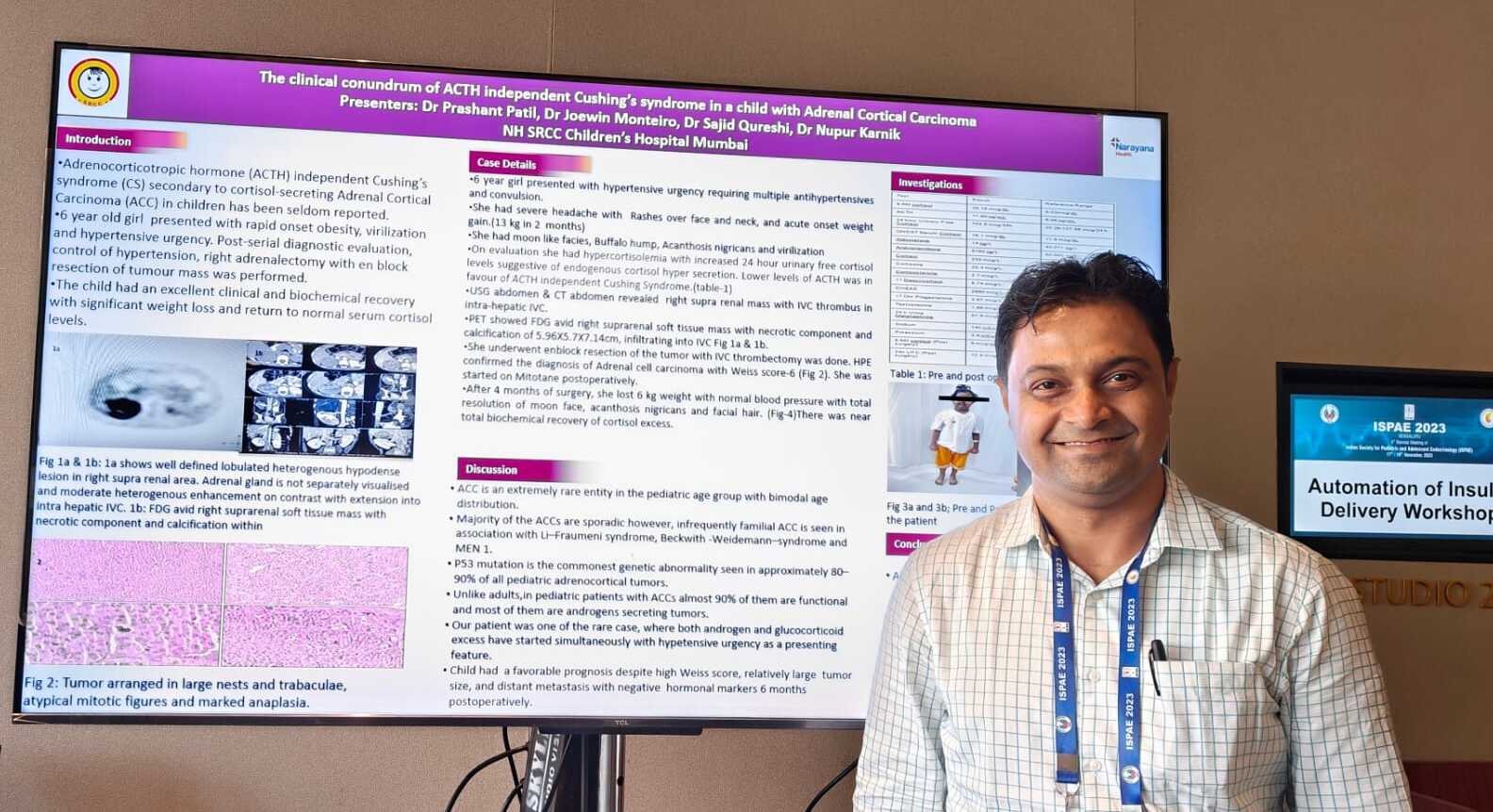
(Baccho Me Motapa kaise kam kare ) Childhood obesity is becoming an alarming issue in many countries, including India. As the lifestyle of children has changed with the increasing reliance on technology, sedentary habits, and poor dietary choices, the prevalence of obesity has risen drastically. Obesity in children can lead to serious health problems, both physical and psychological. It is crucial to address this issue at an early stage to prevent long-term complications. Dr. Prashant Patil, a renowned pediatric endocrinologist, shares his insights on how to reduce obesity in children effectively.
Understanding Obesity in Children
Obesity is defined as an excessive accumulation of body fat that poses a risk to a child’s health. It is typically measured by calculating the body mass index (BMI), which is an indicator of body fat based on weight and height. Children are considered obese if their BMI is higher than the 95th percentile for their age and gender.
Obesity in children can lead to various health issues such as:
- Type 2 diabetes
- High blood pressure
- Heart disease
- Sleep apnea
- Joint problems
- Psychological issues like depression and low self-esteem
With the increasing prevalence of childhood obesity, it is crucial to take preventive and corrective measures to ensure that children maintain a healthy weight and grow up to be healthy adults.
Signs and Causes of Obesity in Children
Before discussing how to reduce obesity in children, it is important to understand the signs and causes of obesity. Obesity in children can be caused by several factors, including genetics, environment, and behavior.
1. Poor Diet Choices: A diet high in calories, fats, sugars, and processed foods can lead to excessive weight gain. Fast food, sugary drinks, and snacks are often consumed in large quantities, leading to an imbalance in calorie intake and expenditure.
2. Lack of Physical Activity: In today’s digital age, children spend long hours playing video games, watching television, or using smartphones, which reduces their physical activity. Lack of exercise contributes significantly to weight gain.
3. Genetics: Children whose parents are obese are more likely to become obese themselves. Genetics plays a role in determining how the body stores fat and burns calories.
4. Psychological Factors: Emotional stress, anxiety, and depression can lead to overeating, which contributes to obesity. Children may eat excessively to cope with emotions.
5. Hormonal and Medical Issues: Certain medical conditions, such as hypothyroidism or polycystic ovary syndrome (PCOS), can also lead to weight gain in children. Consulting a pediatric endocrinologist like Dr. Prashant Patil can help diagnose such conditions.

How to Reduce Obesity in Children: Tips and Strategies
Reducing obesity in children requires a multifaceted approach. Dr. Prashant Patil recommends the following strategies to parents and caregivers to help their children achieve and maintain a healthy weight.
1. Encourage a Healthy Diet
The first step in addressing obesity in children is promoting healthy eating habits. A balanced diet consisting of fruits, vegetables, whole grains, lean proteins, and healthy fats is essential. Reducing the consumption of processed foods, sugary drinks, and snacks will help prevent excess calorie intake.
Key Tips for Healthy Eating:
- Reduce Sugar Intake: Avoid sugary drinks like sodas and energy drinks. Instead, opt for water, milk, or unsweetened beverages.
- Increase Fiber: Include plenty of fruits, vegetables, and whole grains in your child’s diet. Fiber helps keep children full for longer periods and aids in digestion.
- Limit Junk Food: Fast food, chips, and sweets should be limited and only given occasionally as treats.
- Serve Smaller Portions: Teaching children to eat smaller portions can help control calorie intake.
2. Encourage Regular Physical Activity
Physical activity plays a crucial role in weight management. Dr. Prashant Patil emphasizes the importance of regular exercise for children to help reduce obesity. Physical activity not only burns calories but also improves metabolism and overall health.
Exercise Recommendations:
- Aim for 60 minutes of physical activity daily. Encourage activities like cycling, swimming, running, or playing sports like football or basketball.
- Limit Screen Time: Reducing screen time (TV, video games, and smartphones) can help children engage in more physical activities.
- Make it Fun: Find enjoyable activities that your child likes. Whether it’s dancing, playing outdoors, or going on family walks, make physical activity a fun experience.
3. Promote a Healthy Sleep Routine
Quality sleep is essential for maintaining a healthy weight. Lack of sleep can lead to hormonal imbalances that increase hunger and cravings, particularly for unhealthy foods. It is important to ensure that children get enough sleep, as poor sleep patterns contribute to weight gain.
Sleep Recommendations:
- Create a consistent sleep schedule. Set a regular bedtime and wake-up time for your child.
- Limit screen time before bed. The blue light emitted by screens can interfere with sleep patterns.
- Create a relaxing bedtime routine. Encourage calming activities like reading a book before bed.
4. Foster Emotional Well-being
Children’s emotional well-being is closely tied to their eating habits. Emotional eating is often a response to stress, anxiety, or boredom. Encouraging healthy coping mechanisms for emotions is essential in reducing obesity in children.
Ways to Improve Emotional Health:
- Talk to your child about their feelings. Encourage open communication and make them feel heard.
- Offer support and understanding. Help your child deal with stress in healthy ways, such as engaging in hobbies or activities they enjoy.
- Avoid using food as a reward or punishment. This helps prevent emotional associations with food.
5. Monitor Your Child’s Health Regularly
Regular check-ups with a pediatrician, like Dr. Prashant Patil, can help identify potential issues that may be contributing to obesity. Pediatric endocrinologists are trained to assess and treat conditions like hormonal imbalances that can affect weight.
Regular health monitoring includes:
- Tracking your child’s weight and BMI regularly.
- Blood tests to check for underlying health conditions like thyroid problems or diabetes.
- Regular visits to a specialist for personalized advice and treatment options.
6. Set a Good Example
Children often model their behavior after their parents. By adopting healthy eating habits, being physically active, and practicing positive habits yourself, you set a good example for your child to follow.
Parental Role in Weight Management:
- Eat meals together as a family. This encourages healthier eating and provides a chance to bond.
- Get involved in your child’s physical activities. Participate in exercise routines or outdoor activities as a family.
- Make healthy choices together. Encourage your child to make healthy food choices by showing them how to cook simple, nutritious meals.
7. Consider Professional Support
If obesity persists despite efforts to change eating habits and increase physical activity, it may be helpful to consult a pediatric endocrinologist like Dr. Prashant Patil. A specialist can assess your child’s individual needs and provide personalized treatment plans, which may include medical intervention or behavioral therapy.
When to Seek Professional Help:
- If your child has difficulty losing weight despite lifestyle changes.
- If there are underlying health conditions such as diabetes or hormonal imbalances.
- If your child is experiencing psychological issues due to their weight.
Conclusion: How to Reduce Obesity in Children
Obesity in children is a serious issue, but with the right strategies, it is possible to reduce obesity and help children lead healthier lives. Dr. Prashant Patil emphasizes the importance of a balanced diet, regular physical activity, adequate sleep, emotional support, and professional guidance. Parents must be proactive in making positive changes in their child’s lifestyle, and providing a supportive environment that encourages healthy habits.
By understanding how to reduce obesity in children and taking consistent steps, we can ensure that children grow up to be healthy, active, and confident individuals. Remember, the key to success lies in gradual changes, patience, and support from both parents and healthcare professionals.








